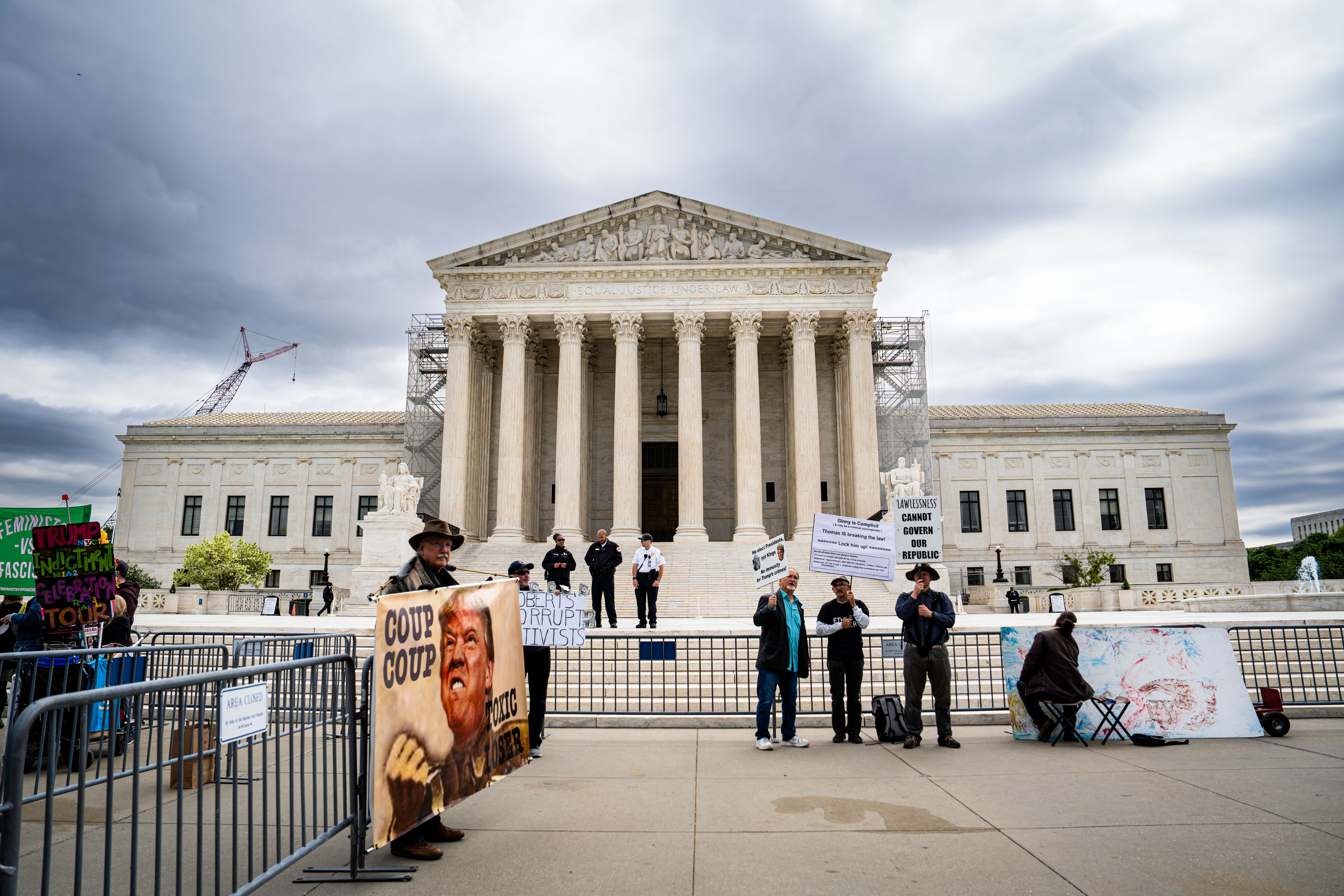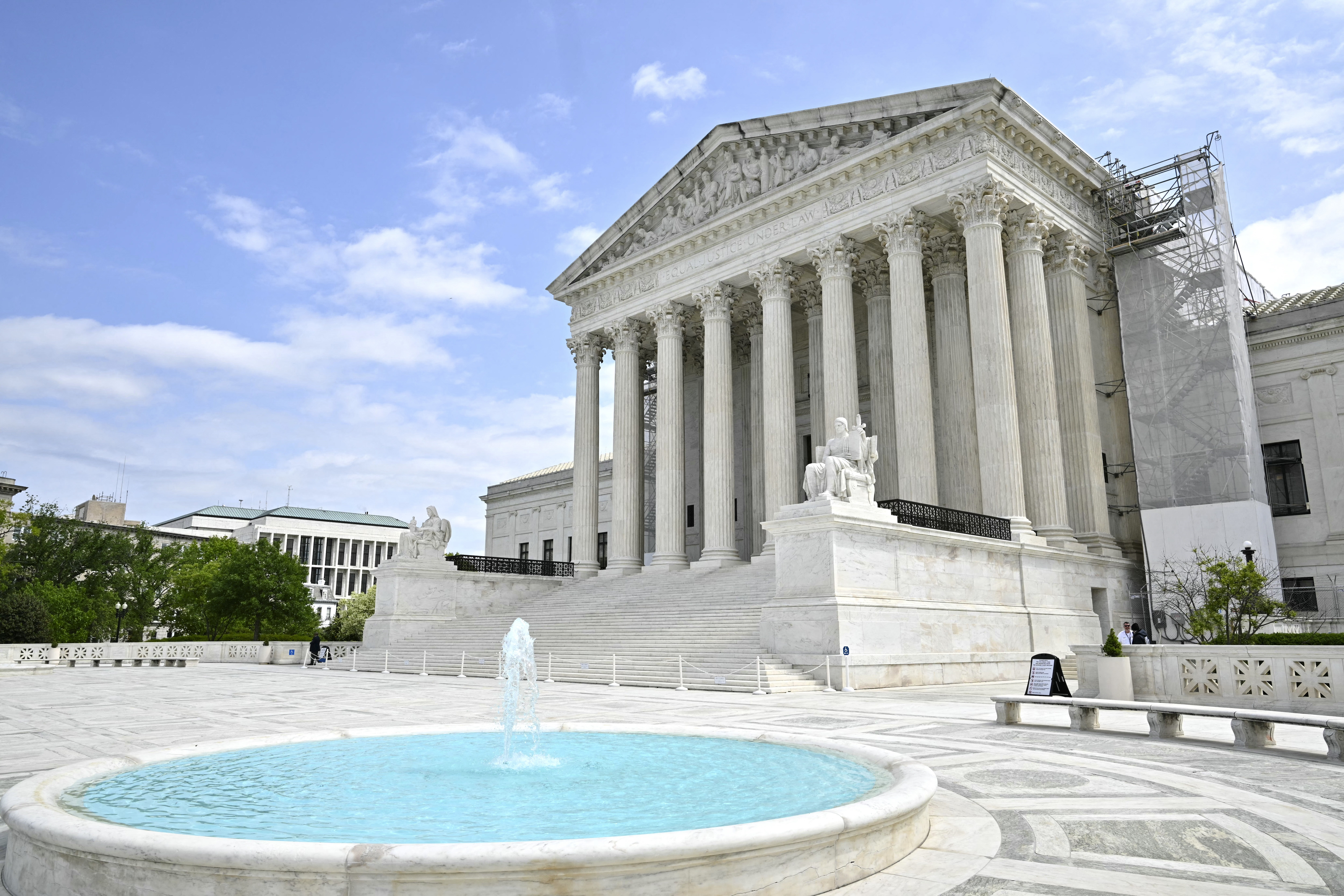The Supreme Court seemed skeptical on April 25 of former President Donald Trump’s claim that he should receive absolute criminal immunity, but it appeared to be open to allowing some level of immunity for presidents.
Conservative justices seemed poised to remand the case back to the district court in Washington with instructions on what constitutes official and private acts for further fact-finding proceedings. This would further delay President Trump’s trial in Washington and possibly other proceedings in Georgia, Florida, and New York, handing him a strategic win as he seeks to hold up cases until after the November presidential election.
Attorney D. John Sauer argued for President Trump, and former Deputy Solicitor General Michael Dreeben argued for Special Counsel Jack Smith. The case stems from President Trump’s attempt to dismiss Mr. Smith’s indictment related to his activities on and leading up to Jan. 6, 2021.



